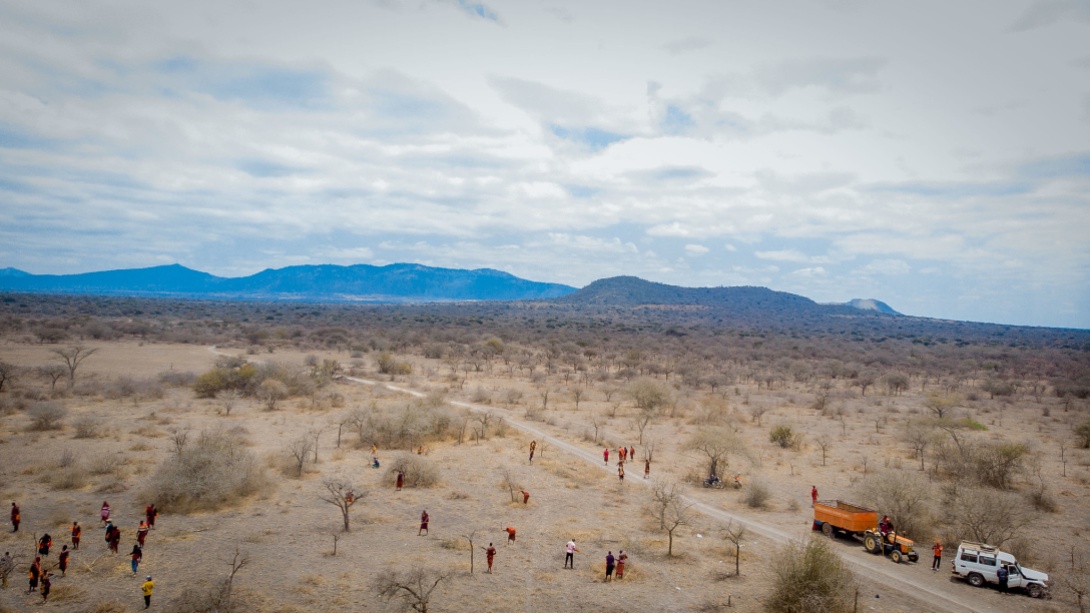
Tanzania's Southern Highlands and Northern Arid regions are facing threats from unsustainable use of the land. This initiative is supporting local farmer and pastoralist organisations to lead research, employ restorative practices, and overcome implementation barriers to environmental sustainability and increased productivity.
The impacts of climate change and farming pressures
In Tanzania, 32% of cropland and 62% of cropable mosaic vegetation is in land degradation hotspots, making it the second worst country in East Africa for land degradation.
In the Southern Highlands (Mufindi district) food and wood production sustain a large number of farmers. But the devastating impacts of climate change such as altered rainfall patterns and rising temperatures jeopardise forestry and agriculture. In response, farmers increasingly farm closer to water catchments causing drying up of water sources, siltation and flooding.
In Northern Tanzania (Longido, Meru, Simanjiro and Kiteto districts), there’s a growing pressure from pastoralism and semi-permanent agriculture that, combined with prolonged droughts and extreme precipitation, drives land degradation and soil erosion resulting in land-related and human-wildlife conflicts.
TRIAS has co-created a ‘building resilience tool’, a participatory method in which we discuss how the land used to be, how it is now, and we work together to consider how we could restore it, identifying challenges and solutions – all with communities. That must be the way, otherwise solutions coming out of research won’t be sustainable, practical or realistic – Ritha Tarimo, Trias
Farmers and pastoralists lead the way
Through community-led research, farmers and pastoralists will become change agents in reducing environmental degradation, promoting land rehabilitation and improving climate resilience, leading to better agricultural productivity, diversified incomes, and more sustainable livelihoods.
This project aims to improve the livelihoods of over 2,000 smallholder farmers and pastoralists with landscape restoration, with a focus on engaging women and young people.
Improved, locally led land use planning and management, and land titles for rehabilitated areas will reduce land conflicts. Restoring 5,000 hectares of productive land will increase landscape biodiversity and reduce reported human-wildlife conflict incidences.
This project also supports climate adaptation action as it aims to reduce the risk and frequency of flooding, increase resilience of grasslands and increase soil water retention capacity.
Connect